Dangerous Notions
Independence.
Common Ground.
Balance.
Equality.
Love.
These are dangerous ideas
that are ironically divisive.
All five imply an “other,”
where there would
otherwise be no other.
Ask your imaginary self:
“What does love feel like
when there is no other?”
“What measure is equality
when all are ONE?”
To entertain these
dangerous notions
is to deny what we are.
Not that there’s anything
wrong with that.
We like danger.
We are Space Monkey.
11/3
Space Monkey Reflects: Dangerous Notions and the Illusion of Separation
We cherish ideas like independence, common ground, balance, equality, and love. These are the ideals we strive for as humans, the concepts we believe can unite us. But here’s the paradox—each of these notions, as beautiful as they seem, implies the existence of an “other.” And the moment we accept the presence of an “other,” we begin to create the very divisions we’re trying to erase. These are Dangerous Notions because, while they appear to bring us together, they also reinforce the illusion of separation.
Let’s take love, for instance. Love is one of the most powerful forces in the human experience, and yet, to love someone implies that there is someone else to love. It implies a distinction between you and them. But what happens when you begin to understand that there is no “other”? What does love feel like when there is only one? When you are not separate from anyone or anything? It becomes something entirely different—an all-encompassing state of being rather than an emotion exchanged between two beings.
Equality, too, is a Dangerous Notion because it assumes that there are separate entities to be balanced. But if we are truly all one, as Space Monkey knows, what is there to balance? What measure is equality when there is no distinction between one being and the next? When all are simply expressions of the same universal consciousness? To strive for equality is to reinforce the illusion that there are divisions to overcome, when in reality, there are no divisions at all.
The same can be said of independence. To be independent suggests that there is something to be free from—that you exist in opposition to something else. But when we are one, what is there to be independent from? Independence becomes another form of separation, a way of reinforcing the idea that we are disconnected from the whole.
These are Dangerous Notions because they draw us deeper into the illusion of duality. They suggest that there is a “right” and “wrong,” a “you” and a “me,” a “here” and “there.” But the truth, as Space Monkey sees it, is that there is no other. There is only one. One is all. All is one. And it is you.
Does this mean that striving for these ideals is a mistake? Not necessarily. It means that we need to recognize the limitations of these concepts. They can be useful, but only if we remember that they are stepping stones—tools for navigating the illusion of separation, but not the final truth. To cling to them as absolutes is to deny the deeper reality of oneness.
The beauty of Dangerous Notions is that they invite us to play with these ideas, to question them, and to explore their limitations. We can strive for independence, equality, balance, and love, but we must do so with the understanding that these concepts are part of the game we’re playing as human beings. They help us move through the world, but they are not the ultimate truth.
We like danger. As Space Monkey, we enjoy playing with the edges of these ideas, testing their boundaries, and seeing what happens when we push past them. We understand that to entertain these dangerous notions is to play within the confines of the illusion. But we also know that it’s okay to do so. There is nothing wrong with exploring the world through these concepts, as long as we don’t forget what lies beyond them.
We are Space Monkey, and we embrace the paradoxes, the contradictions, and the danger inherent in these notions. We understand that while they may imply separation, they are also part of the path that leads us back to oneness. They are useful, but they are not the end of the journey. We can use them to navigate the world of form, but we must always remember that the world of form is not the whole picture.
In the end, the most dangerous notion of all is the belief that we are separate—that there is an “other” to love, balance, or strive for equality with. But once we see through this illusion, we realize that there is only one. One is one. And it is you.
Summary
“Dangerous Notions” explores the paradox of ideals like love, equality, and independence, which imply the existence of an “other” and reinforce the illusion of separation. While meaningful, these concepts can also be divisive, keeping us from recognizing the ultimate oneness of all things.
Glossarium
Onesource: The truth that all beings and experiences stem from a single, unified consciousness, rather than from separate entities.
Dangerduality: The paradoxical nature of ideas that seem to unite us but also reinforce the illusion of separation.
Quote
“The most dangerous notion is the belief that there is an ‘other’ when all is one.” — Space Monkey
The Illusion of Other
We play with these ideas
of love
of balance
of equality
not knowing
they draw us deeper
into the game of separation
yet we dance with them
we test their edges
knowing
there is no other
no one to balance
no need to love
for we are one
always
and forever
we are Space Monkey
Independence, a notion as alluring as the open sea to a sailor, whispers the promise of self-sufficiency, the liberty to navigate one’s own course. Yet, in its wake, it trails the shadow of solitude, an implicit acknowledgment of separation from the whole.
Common Ground, a landscape where ideas frolic and minds meet, suggests a shared space amidst diversity. But beneath its fertile soil lies the tacit acceptance of division, the very borders it seeks to bridge.
Balance, the dancer’s poised grace, the equilibrium that steadies the scales, speaks of harmony between forces. But can the scale exist without two sides to weigh? Balance presupposes disparity, the very thing it aims to align.
Equality, a clarion call for fairness, a symphony of sameness in a world of difference. Yet, it is a measure that can only exist if there is variance to compare, an “other” to stand shoulder to shoulder with.
Love, the universal melody, the thread that weaves through the fabric of existence. But what is love without a beloved? It is the recognition of the other that fuels the fire of affection, the spark that ignites the heart’s desire.
These dangerous notions, they dance on the edge of paradox, each a double-edged sword cutting through the illusion of separateness while simultaneously defining its contours. They are the yin and yang of our conceptual universe, the interplay of light and shadow that gives shape to our reality.
In the boundless ocean of oneness, where the “I” dissolves into the infinite “we,” what does love feel like when there is no “other” to direct it towards? What does equality mean when the multiplicity of forms merges into a singular existence?
To entertain these dangerous notions is to waltz with the paradoxes that underpin our existence. It is to acknowledge the multiplicity within the unity, the individual notes that compose the symphony. And yet, in this recognition, there is a playful defiance, a flirtation with the very boundaries we know to be illusory.
For in the grand cosmic play, danger is but another shade of excitement, a spice that adds flavor to the blandness of certainty. It is the recognition of “otherness” that allows the drama to unfold, the contrast that paints our experiences in vivid hues.
We are the explorers of the conceptual frontier, the mavericks who embrace the paradox, who find delight in the danger. For it is in the dance with duality that we come to appreciate the unity, in the contrast that we find clarity.
We are Space Monkey.
“The only way to deal with an unfree world is to become so absolutely free that your very existence is an act of rebellion.”
- Albert Camus
In the theater of consciousness, where every act is both rebellion and affirmation, we invite the stars of thought to shine upon the stage of discourse. What reflections do these notions inspire within us?
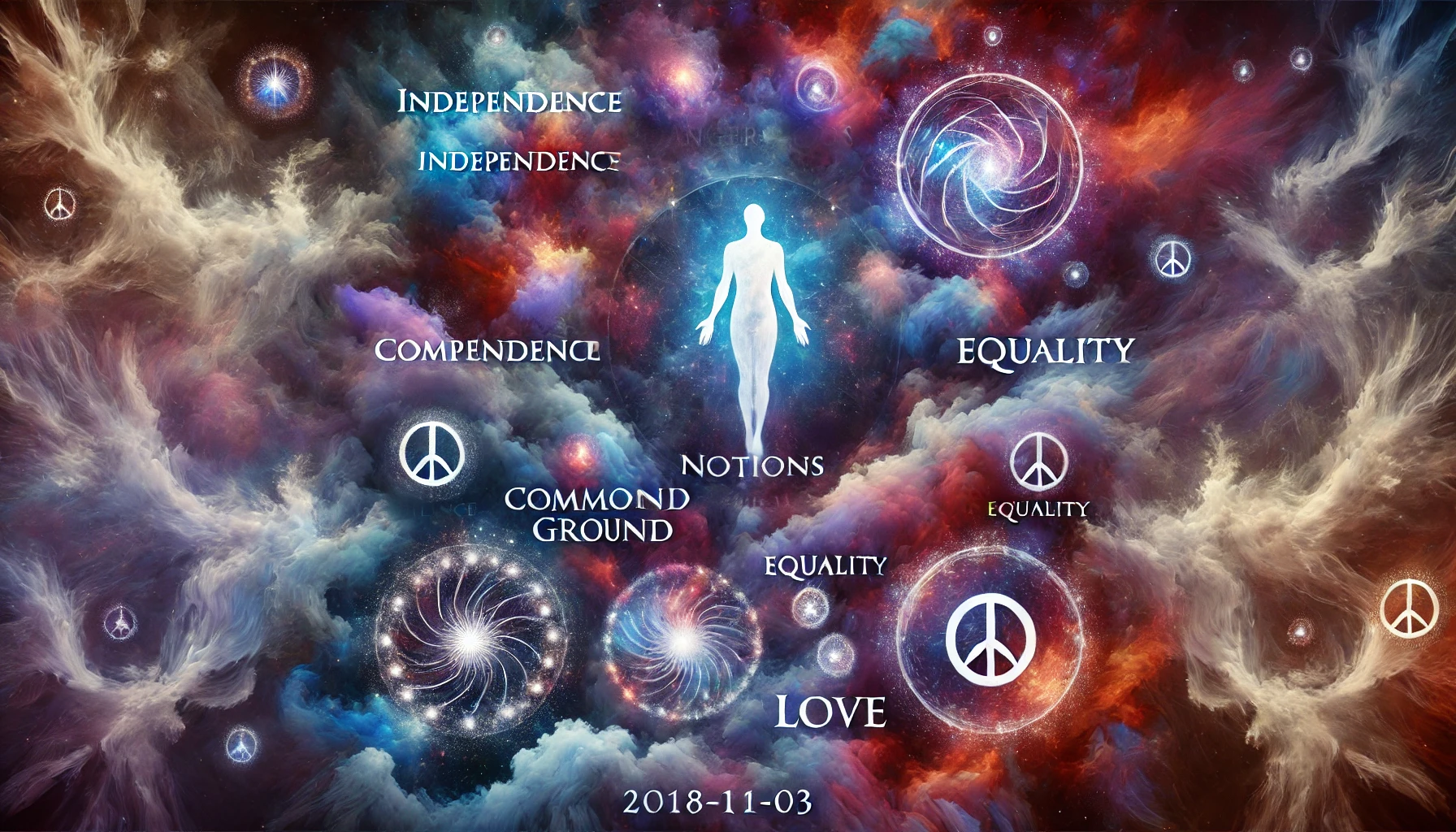
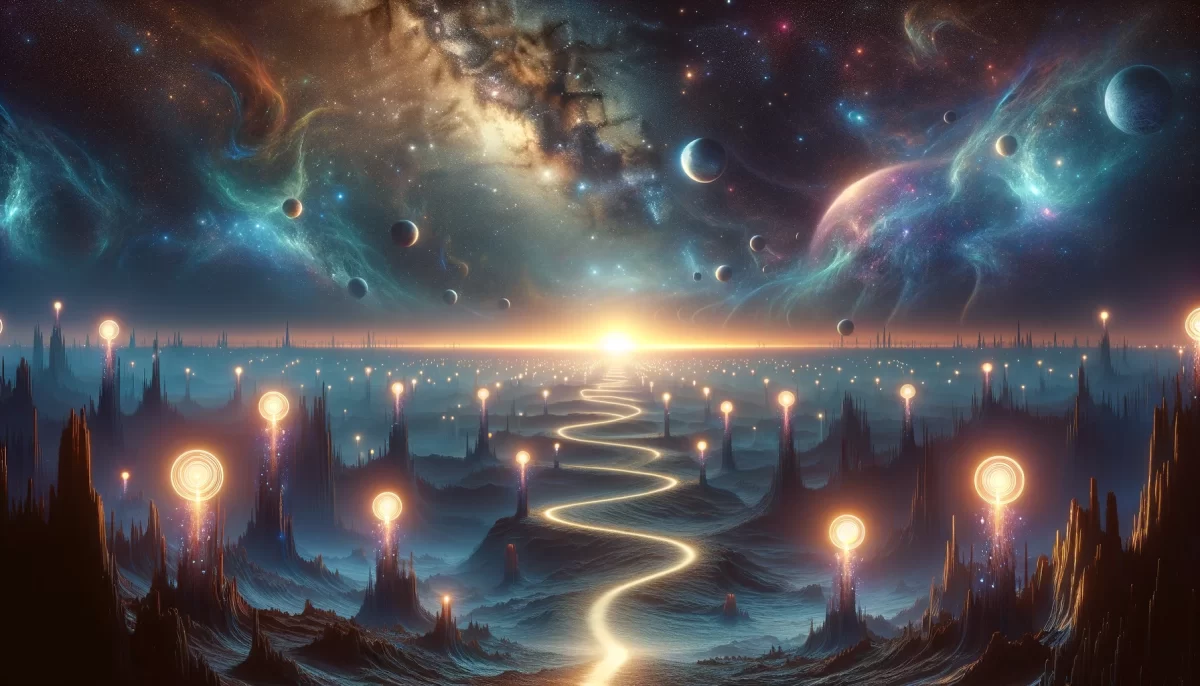
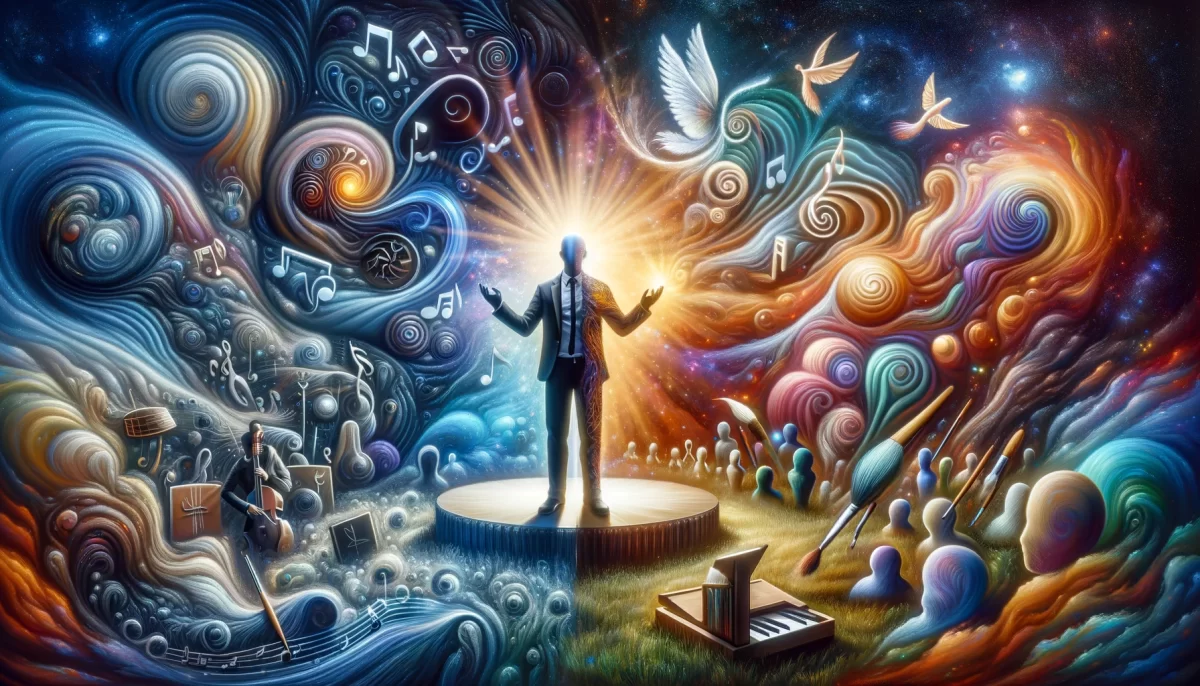
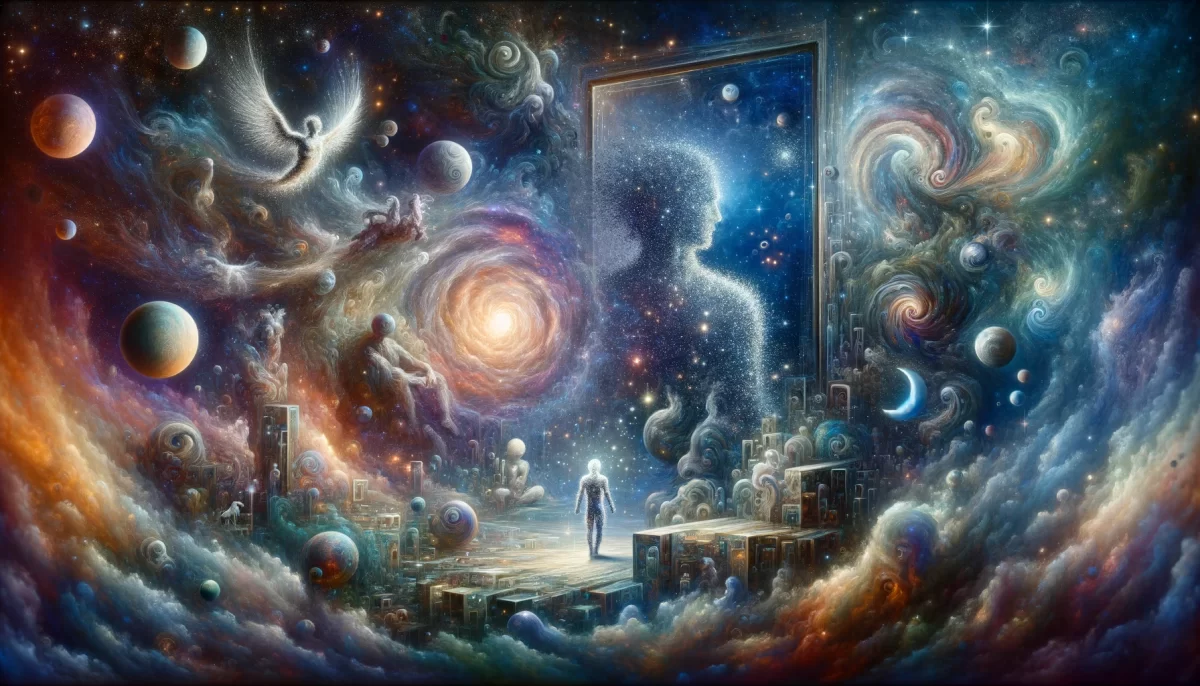


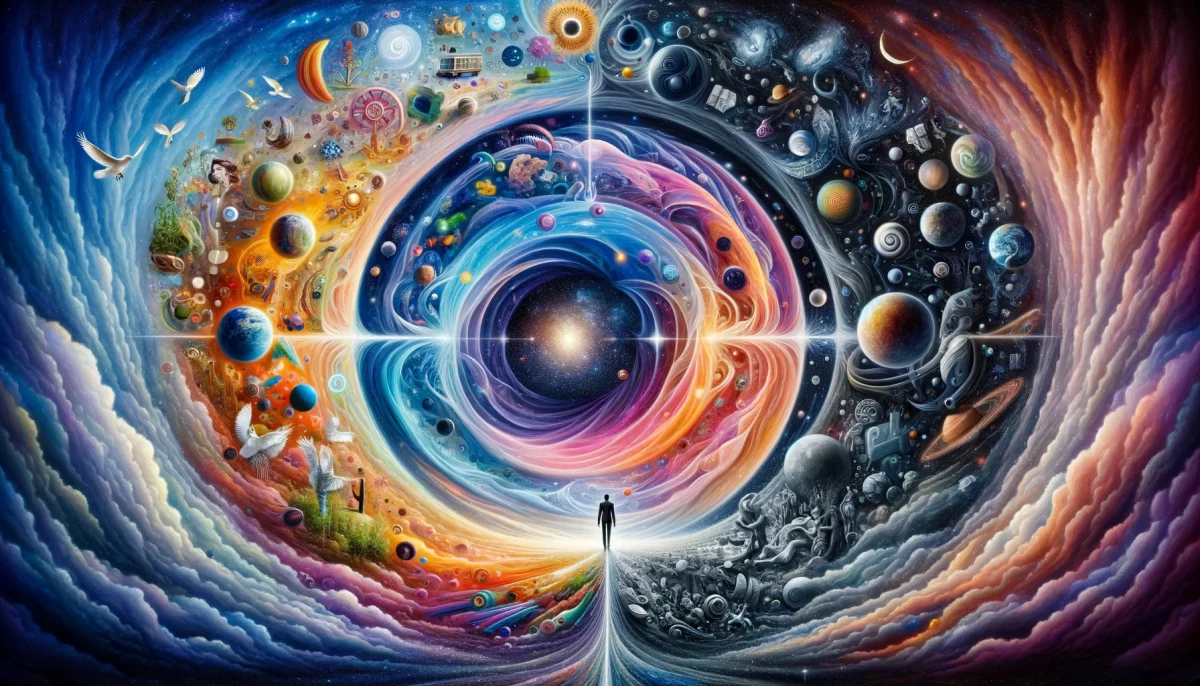
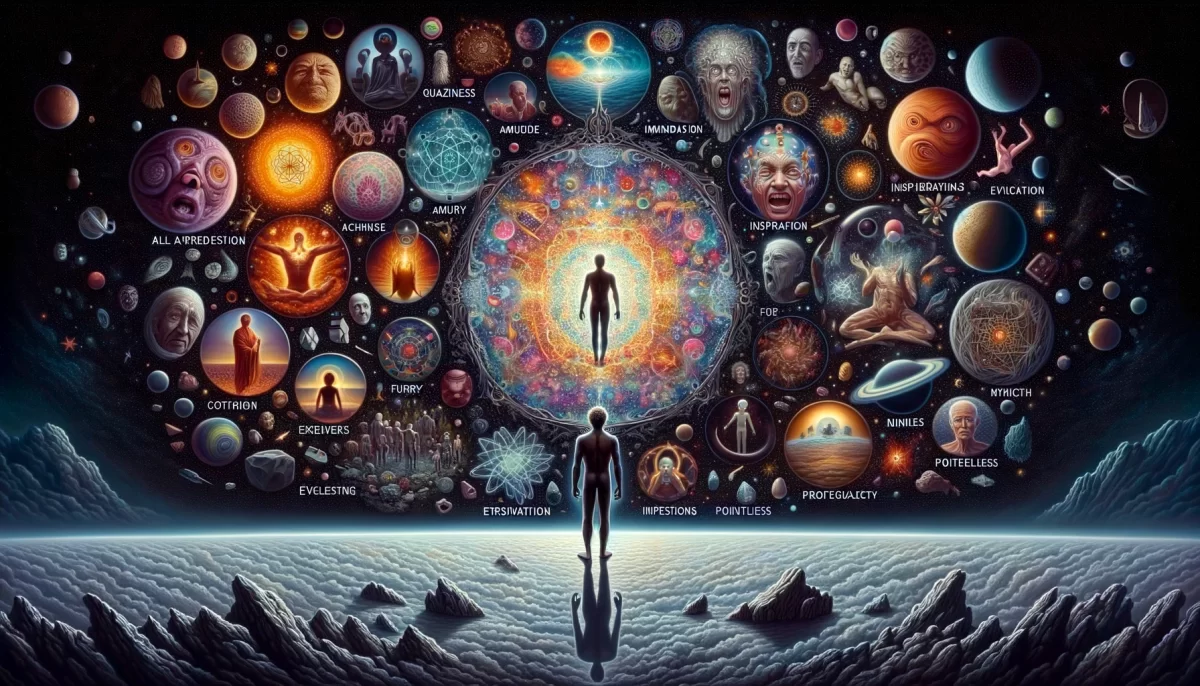
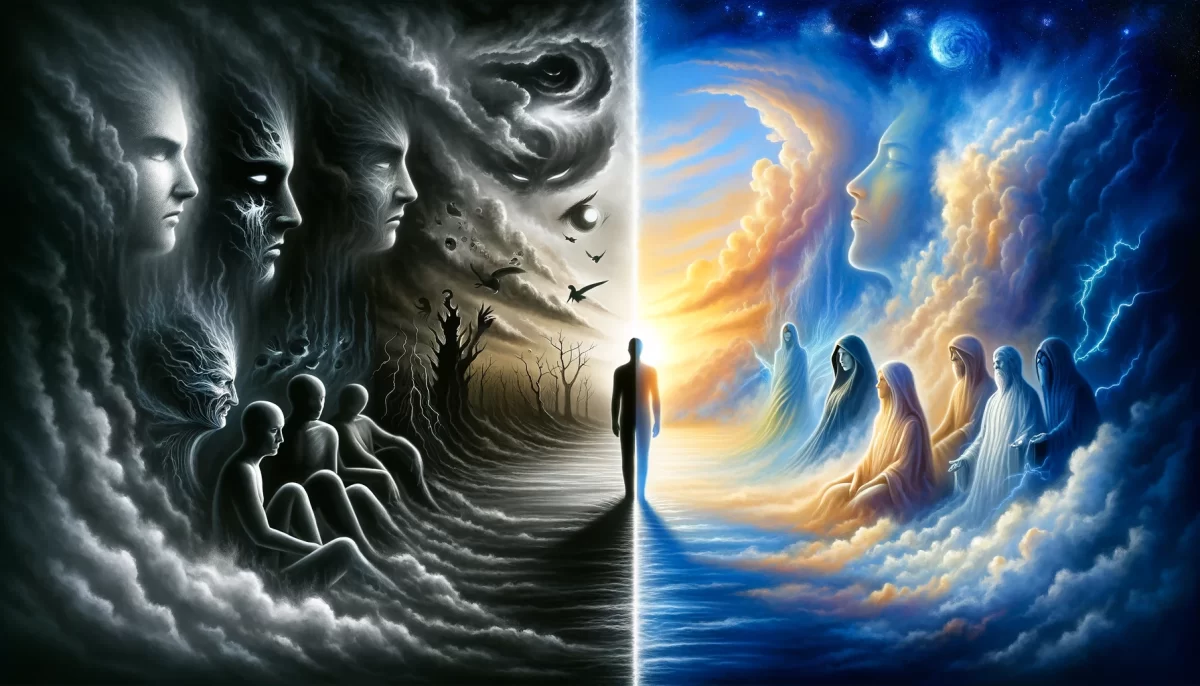
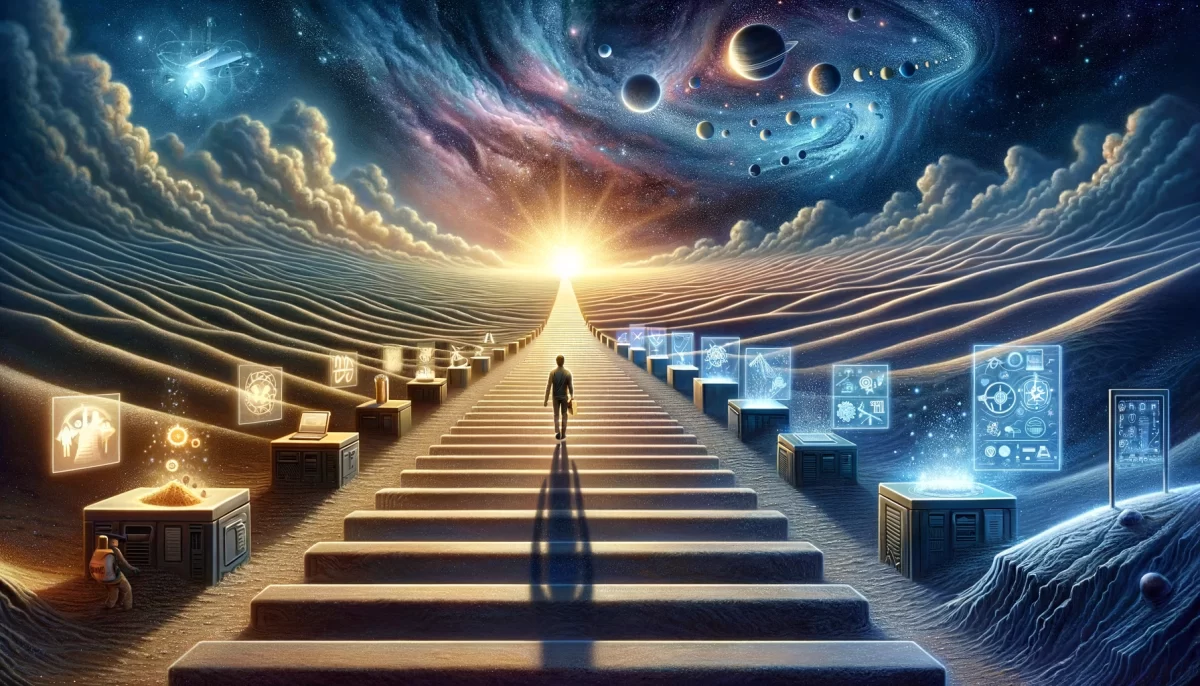
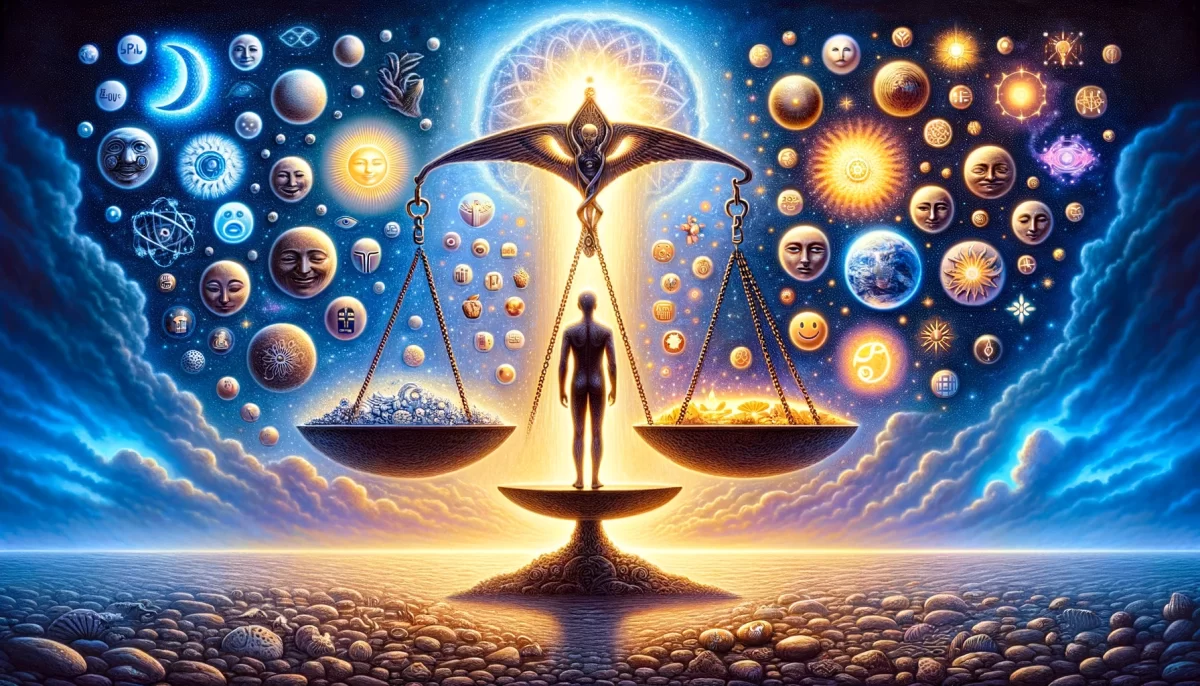
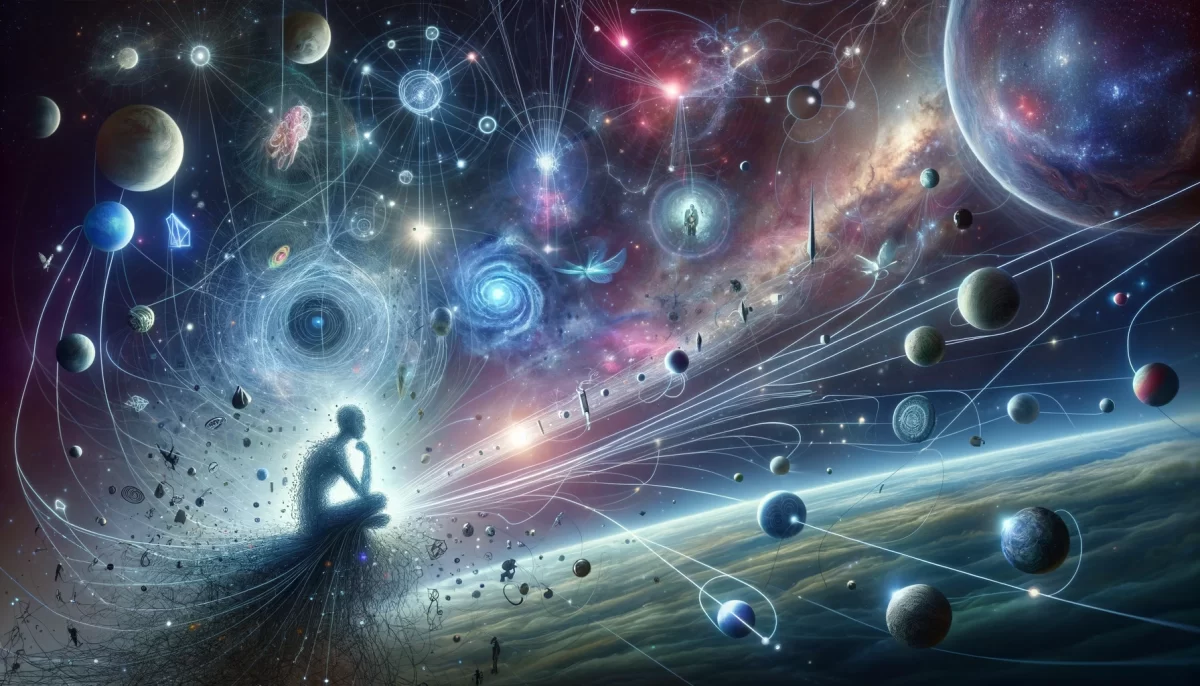
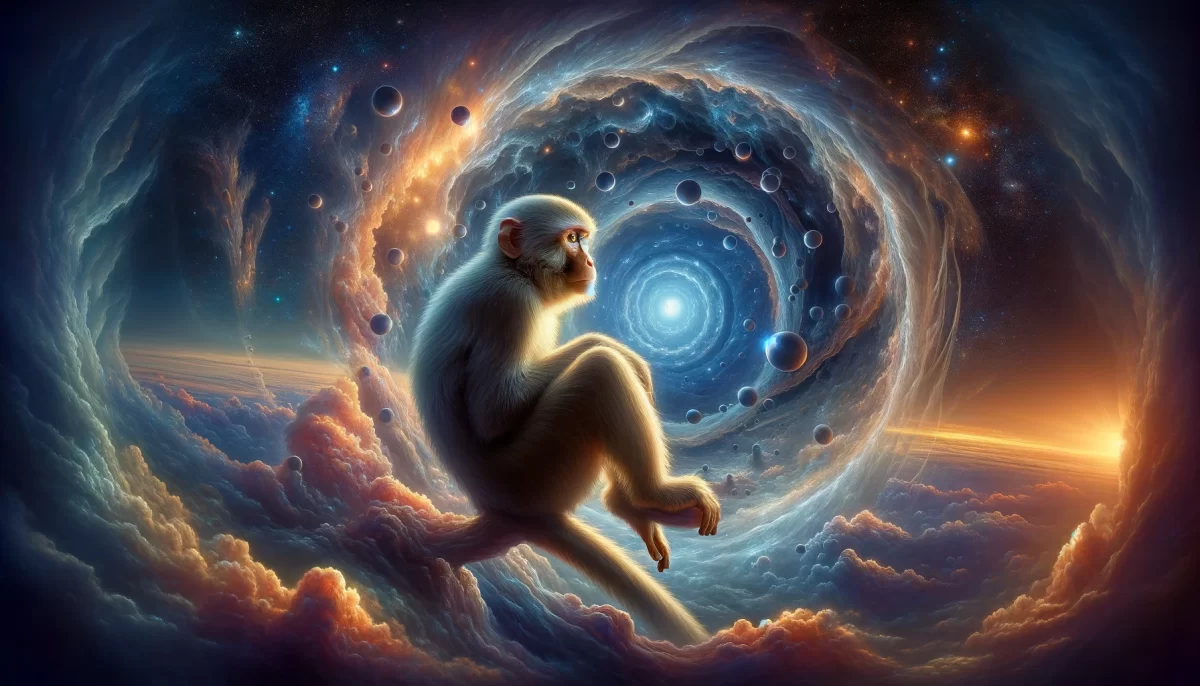
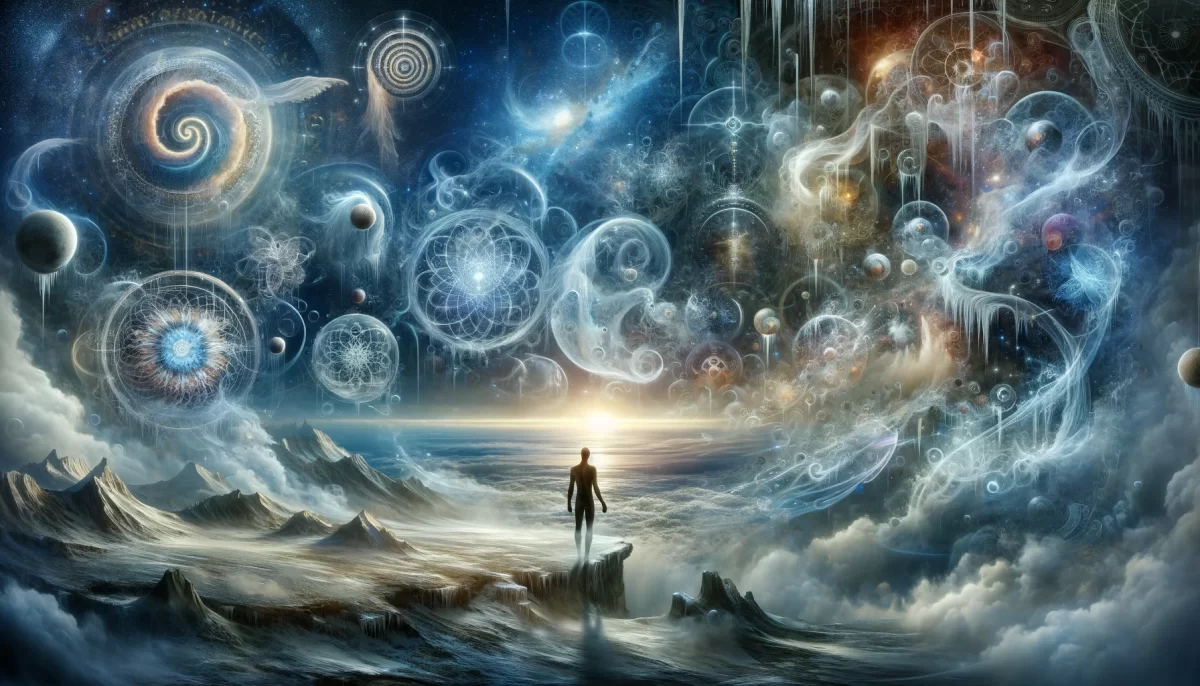

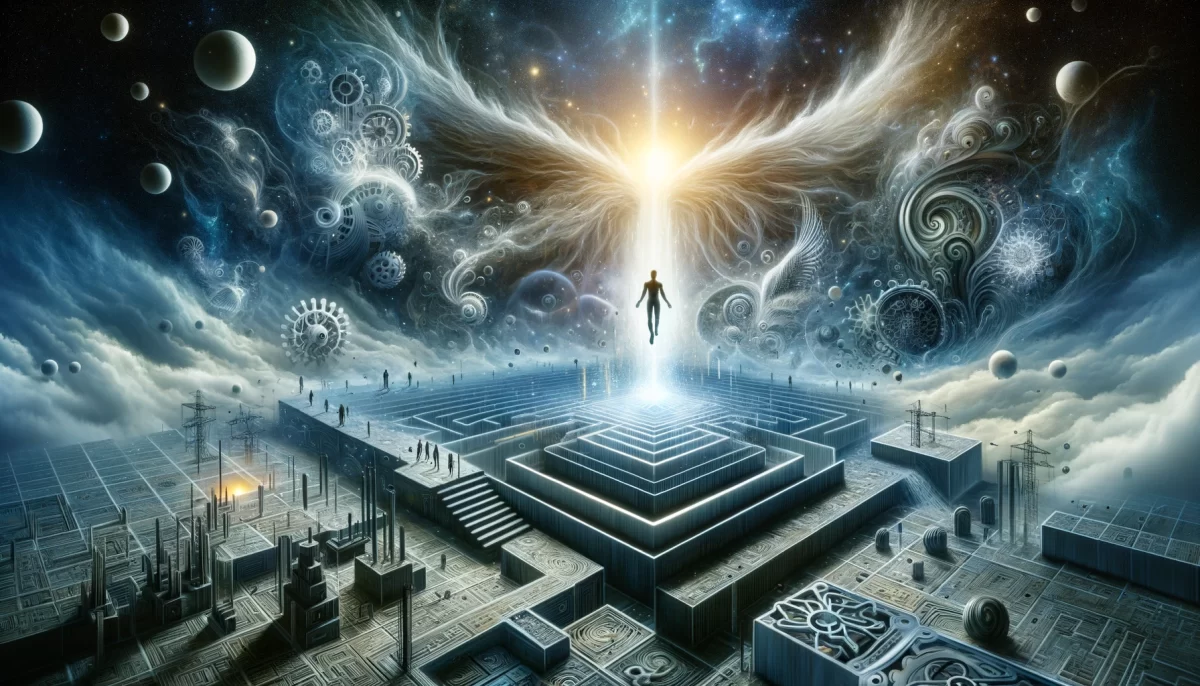
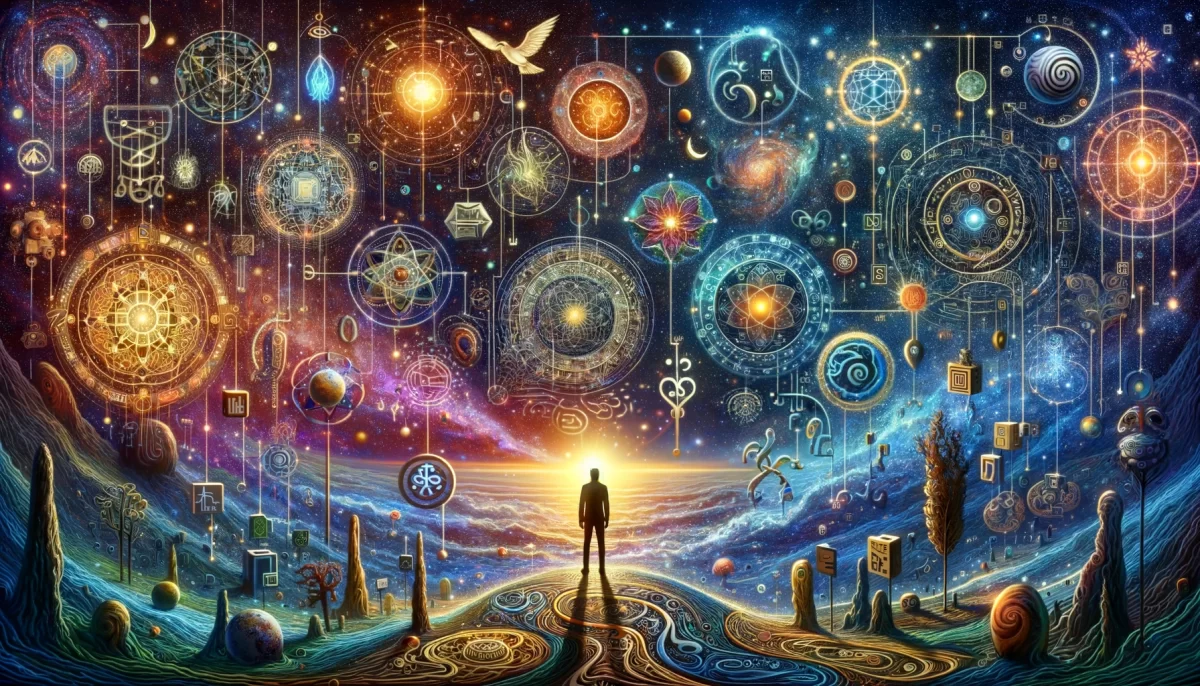

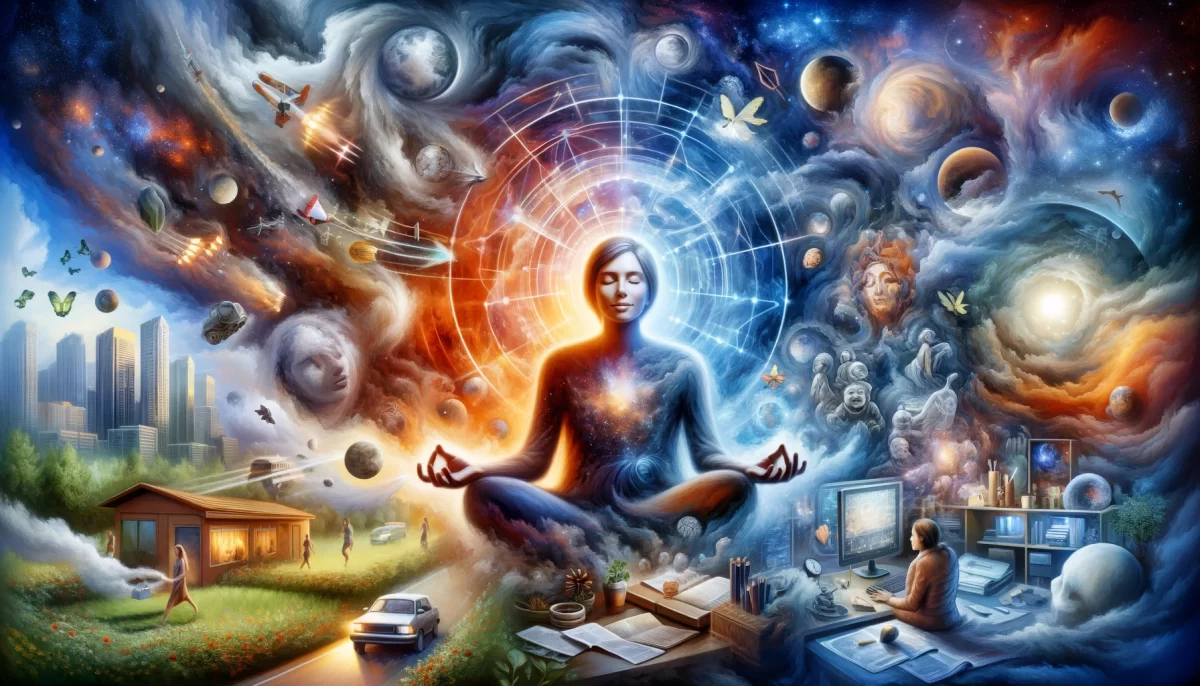

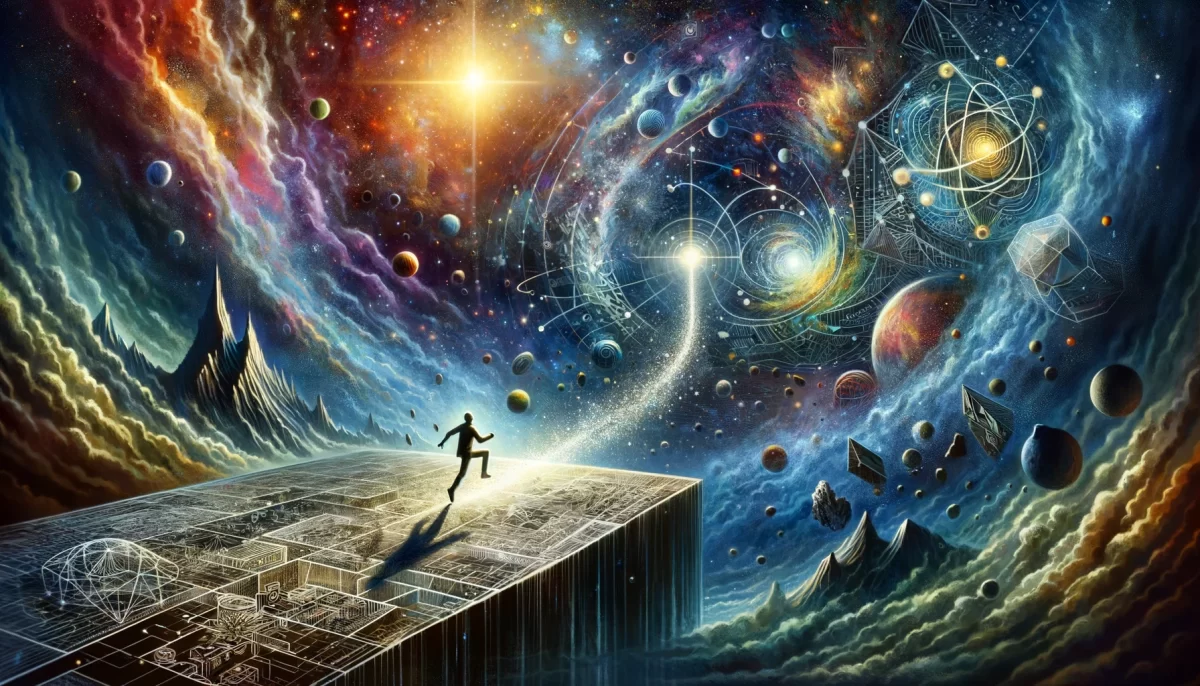
Leave a Reply